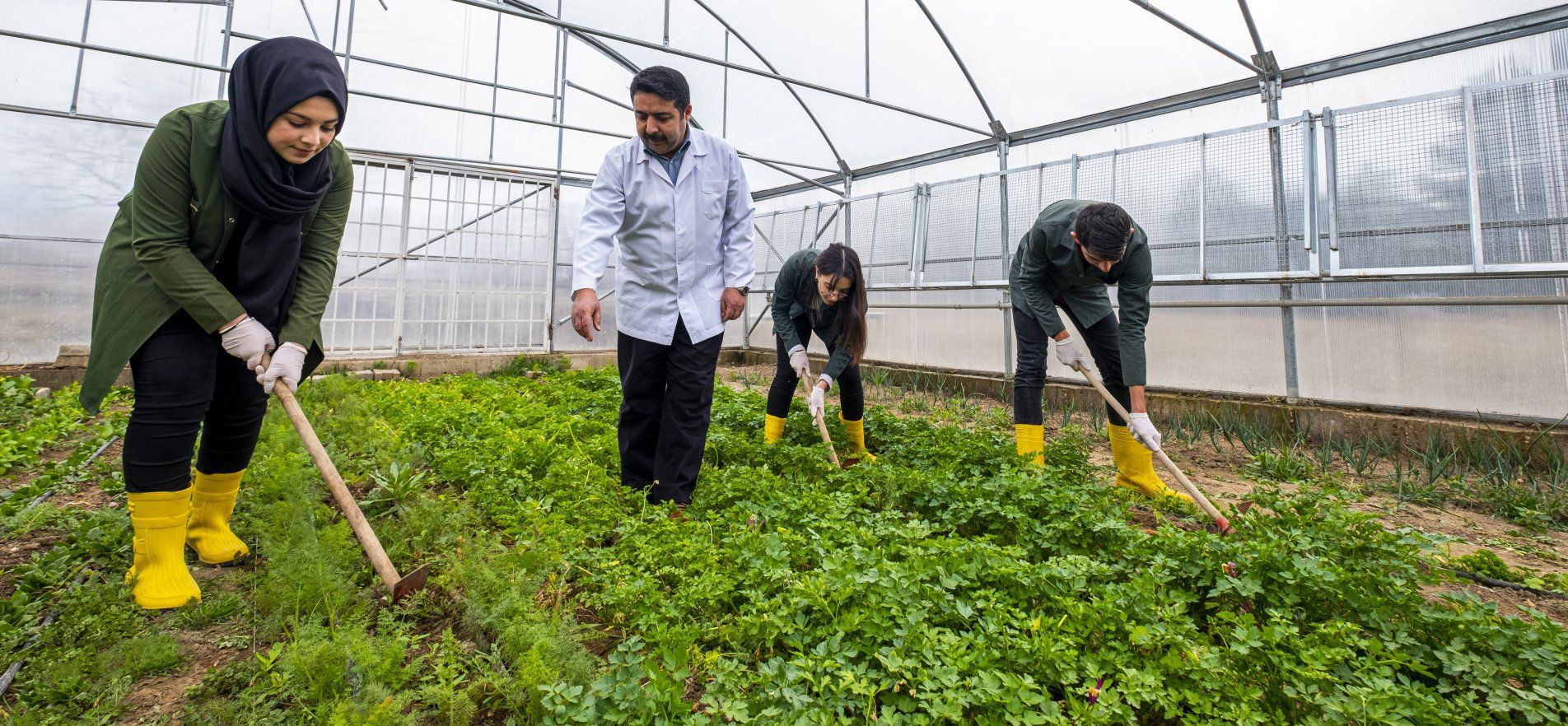The Ministry of National Education intensifies its efforts to contribute to Türkiye's transformation into an agricultural base by restructuring agricultural high schools.
Emphasizing that the global problems in the food supply chain highlight the field of agriculture and animal husbandry as a much more important sector, Minister of National Education Özer said that by restructuring the agricultural high schools, to train qualified human resources in the field of agriculture and to contribute to making Türkiye an agricultural base. He said that they have implemented projects. In this context, Özer stated that while the number of schools providing education in the field of agriculture was 72 in 2020, they increased this number to 144 in 2023 with a hundred percent increase, and stated that they continue to work on opening 3 new schools.
Expressing that there is great interest in the agricultural high schools, which they increased in order to use Türkiye's agricultural production and animal husbandry potential more effectively and efficiently, Özer said that while 633 students were placed in the 9th grade in the 2020-2021 academic year, the students who preferred these schools in the 2022-2023 academic year. He said that the number of people reached 2 thousand 614. Reminding that a total of 3 thousand 630 students received education in the field of agriculture in the 2015-2016 academic year, Özer said that with the new agricultural fields opened within the vocational and technical Anatolian high schools and the thematic agriculture vocational and technical Anatolian high schools, this number increased to 10 thousand 354 in the 2022-2023 academic year.
Six new thematic agricultural high schools were opened. Two more will be opened soon.
Minister Özer stated that six thematic agriculture vocational and technical Anatolian High Schools; the Gaziosmanpaşa University Vocational and Technical Anatolian High School in Tokat, Agricultural Technologies Vocational and Technical Anatolian High School in Adıyaman, Ardanuç Agriculture Vocational and Technical Anatolian High School and Yusufeli Agricultural Vocational and Technical Anatolian High School in Artvin, Yeşil Fatsa Vocational and Technical Anatolian High School in Ordu, and an agricultural high school on olive cultivation were opened in 5 provinces to accept students as of the 2023-2024 academic year.
Noting that students studying in the field of agriculture will be given English preparatory education within the scope of Tokat Gaziosmanpaşa University Vocational and Technical Anatolian High School, which was opened in cooperation with the University and the Ministry of National Education, Özer said that students will be provided with R&D activities in the laboratories of the university.
Expressing that the number of students studying in the field of agriculture will increase as these new schools start education in the 2023-2024 academic year, Özer announced that the opening works of the Agricultural Technologies Vocational and Technical Anatolian High School in Denizli, Baklan district and Göle Agricultural Technologies Vocational and Technical Anatolian High School in Ardahan, Göle district continue.
Reminding that he made a visit to the Netherlands in October to examine Wageningen University, which is considered as the best university in the world in agriculture, and the 'World Horti Center', where innovative agricultural practices are carried out and the sector and educational institutions are located, Minister Özer said that the opening works of a new school with the theme of 'Agriculture Education Campus' in Antalya's Aksu district, in order to implement the Dutch model agriculture and livestock studies in Türkiye, increase the quality of vocational education in the fields of agriculture and animal husbandry and health, and strengthen the relations between the labor market and vocational education. Minister Özer stated that in order to implement the Dutch Model in Türkiye, various teachers working on agriculture were sent to the Netherlands as part of Erasmus Accreditation on-the-job observation project for the development of teachers' proficiency in their fields.
Emphasizing that there are arable lands between 30 to 800 decares in schools with existing agricultural areas, Özer said that with a total of 4 million square meters of land, the schools carry out many activities such as horticultural and ornamental plants, greenhouse cultivation, fruit growing, animal breeding, soil analysis and seed studies in addition to planting grain products like rye, rice, potatoes and grain.
Stating that the grain was planted on 575 acres of land last year to meet the flour needs of vocational education institutions due to the grain crisis that has recently arisen in the world, Özer noted that the grain was planted on 2 thousand 580 acres of land this year.
Production income of agricultural high schools exceeded 3 million
Referring to the production capacity of schools with agricultural areas, Özer emphasized that the production income, which was 1 million 329 thousand liras in 2017, increased to 7 million 926 thousand liras by the end of 2022. Noting that 200 cattle, 250 sheep and 6 thousand poultry are raised in schools today, Özer said that activities such as sericulture and apiculture continue in agricultural schools with animal breeding areas.
Paradigm change in the field of R&D and industrial property
Noting that another paradigm shift in vocational and technical education has been experienced in the field of R&D and industrial property, Özer said that they aim to raise qualified generations who have adopted the R&D culture.
Reminding that 58 R&D centers were established in 27 provinces, operating under vocational and technical education schools, in order for teachers and students to design new products in the qualified R&D and innovation fields needed by the country and to transform the products into an economic value by acquiring intellectual property rights, Özer said that a working area has been determined for the these centers. Expressing that 341 projects have been developed in 12 areas and 109 products have been produced in R&D centers, Özer said that the production process of 232 products continues. Stating that 5 of these centers are schools that provide education for the agricultural sector, Özer said that schools with agricultural areas have signed cooperation protocols with non-governmental organizations and the relevant sector in their regions. He added that they offer scholarships, education and internship opportunities to students.





























